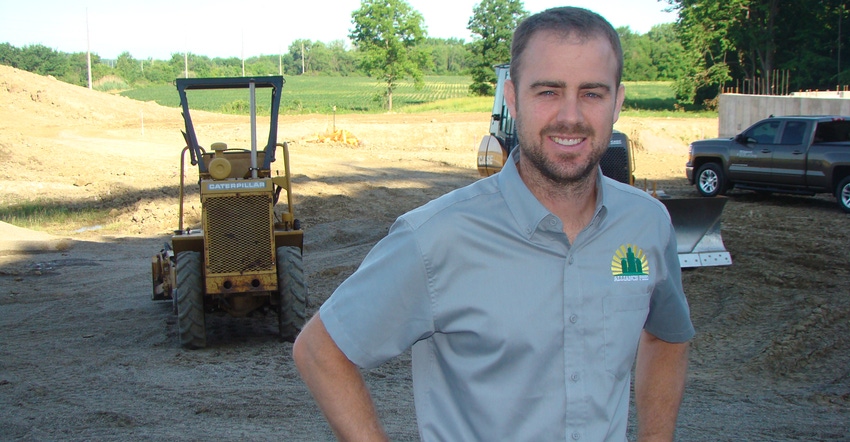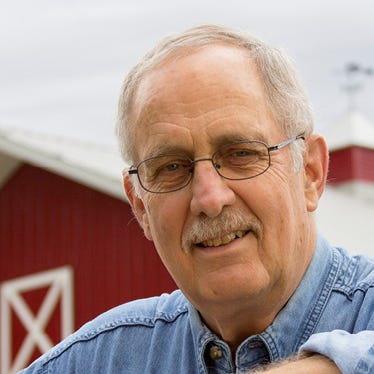July 19, 2018

Ground was recently broken for a new feed mill near Columbia City, Ind. To be known as Alliance Feed LLC, the new plant is a joint venture between Co-Alliance LLP and Farmers Grain and Feed Co.
“We saw this as a good opportunity to diversify and add value to our grain here in the area, and Co-Alliance will be a great partner,” says Trent Shively, Farmers Grain general manager.
When the plant comes on line in July 2019, it will use 6 million bushels of locally grown corn annually, and will feature a state-of-the-art pelletizer. It will produce hog feed for contract growers in northeast Indiana, southern Michigan and northwest Ohio.
Chris Kenyon, Co-Alliance director of swine production, answered the following questions for Indiana Prairie Farmer.
Why did you decide to build a feed mill in northeast Indiana? Co-Alliance built a new feed mill in Reynolds four years ago, and it’s been very successful. As we looked for our next opportunity, we asked ourselves: Where can we still be raising corn and feeding pigs in 40 years? The hog industry in the eastern Corn Belt changed a couple years ago when it was announced that a new packing plant was coming to Coldwater, Mich. When we looked at geographical and other factors, partnering with Farmers Grain — a good, family-owned business in northeast Indiana whose philosophy matched ours — just made sense.
That must mean you see the area as having a good long-term future in hogs, right? Yes. Simply put, everybody eats, and this area is blessed with some pretty good natural resources, including some of the best dirt in the world. Farmers are going to use that to raise corn and feed it to pigs, which makes us the lowest-cost producer in the world. That’s not going to change. To build a plant of this magnitude is a 40- to 50-year asset, and we wouldn’t be putting our money into it if we didn’t think we were going to be here in 50 years.
Currently the pork industry is struggling with issues of narrow or negative margins and trade-related tensions. Are you concerned about that? Supply and demand aren’t always going to line up perfectly, which will lead to ups and downs, but long term, farmers will produce hogs, and they’re going to be doing it here. Regarding the trade situation, we currently have an administration that brings a lot more uncertainty than we’re used to. Short term, this is not a welcome situation, but whether it’s necessary to get the best deal long term remains to be seen. The market’s job is to price certainty or uncertainty into the future, and the market’s doing its job right now. But I come back to the fact that people in the world need safe, affordable food, and we’re the lowest-cost producer.
How will this new feed mill help area farmers? Years ago farming was diversified, and almost every farm included livestock, but then we specialized. Now, people are beginning to look at diversifying again. A lot of the contract barns going up are about bringing the second or third generation back into the family farming operation. And this is a way to use diversification to help young farmers start to build some equity and insulate themselves somewhat from the risks that come from only producing grain commodities. This is a great way for young people to work their way into the family farm.
Boone writes from Wabash, Ind.
About the Author(s)
You May Also Like






